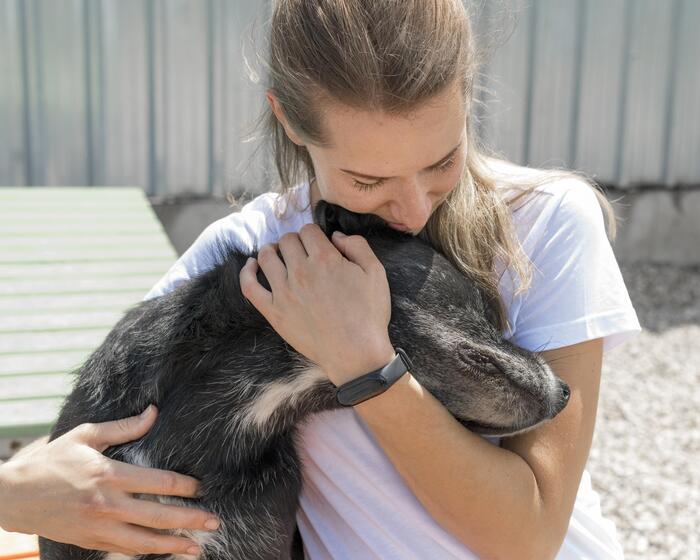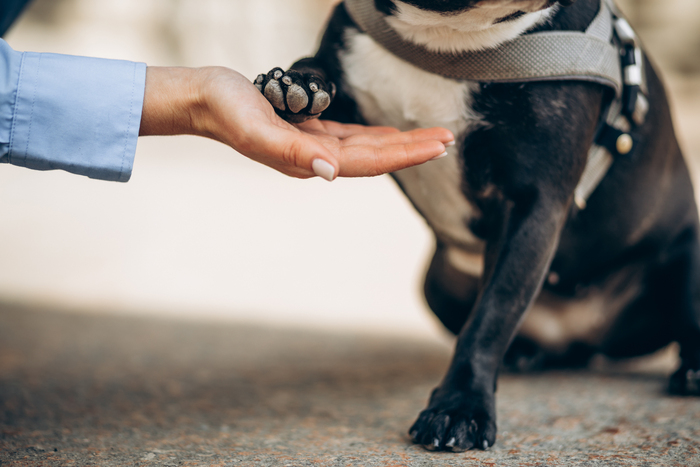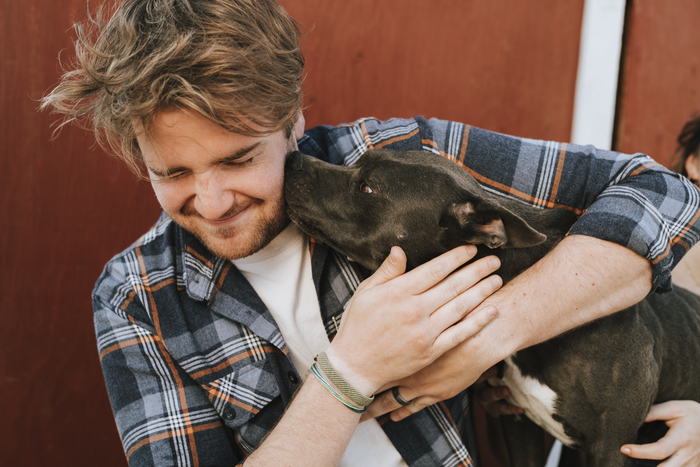2023-05-22
You all may have already heard the quotation: “The greatness of a nation and its moral progress can be judged by the way its animals are treated.” Everyone who is reading this article will probably agree with that and will ask themselves (again) why there are people who treat animals so poorly. Yes, some people have had traumatizing experiences with animals by being bitten or otherwise injured, while others are just not feeling comfortable around animals.
Anyway, physical abuse is unacceptable, whether it is done to a human or an animal. Animals deserve to be respected the same way we should respect each other.
Nearly 4 million dogs are abandoned or brought to shelters every year. These dogs often become even more loyal and loving companions than dogs received from a breeder. They also often develop a very strong bond with the person/people who welcome them in their home.
However, getting a rescue dog is a decision that you should take very carefully as sometimes there are challenges on the way to turning a rescue dog into a calm and well-behaved family and society member.
Today we will talk about dogs who got abused in the past and how to help them regain their trust in humans and enjoy their new forever homes.

Welcoming a dog into your home is definitely an exciting experience. However, when you opt for a rescue dog, especially one, who got abused in the past, you opt for the responsibility to provide a loving and safe environment for them and help them recover.
If your paw friend is rather anxious and unsocial, you should not get discouraged, nor should you punish them for not being the happy dog you are expecting them to be.
It is important that you set realistic expectations on possible behavioral issues such as lack of socialization, fear of people and animals, lethargy, or even signs of aggression, that may need to be addressed.
Giving a home to a dog, who was abused, is an honorable decision, which also requires a lot of patience on your end. You should add “patience” to the key traits you need to have if you want to be a good dog parent.
Dogs are different, and each canine has their own personality. Some dogs get used to their new home and owners more quickly, while others need more time to adjust.
Do not force the process and give your paw pal time to adapt. Be patient!
There are many aspects that can be encompassed by the term 'safe and comfortable environment'.
Just like humans, dogs and cats also need their personal space. This is especially valid for situations that have to do with rescue animals needing time to adapt. You can create a designated area at home for your dog, where they will be able to rest, observe, play, eat, etc. This will be your paw friend’s “safe zone”, which may be extremely helpful to them during the first days at home.
Comfort
In order to make your new family member feel “at home”, you may consider putting soft and warm items such as plush toys on their personal spot. A blanket or your T-shirt may also work.
Also, you may want to get them nice soft bedding, based on their size and age. If your paw friend is already senior, bedding equipped with memory foam may be suitable. If they are still a puppy, bedding with a frame made of a chew- and claw-proof material may be helpful.
Choose a spot at home that will help your dog have a good view and not feel isolated. However, the area should not be very crowded too, as otherwise, it may cause stress in your canine, especially during the first days.

Since you can never be 100% certain how the dog has been raised and treated, and before you bring them home, you do not know their habits. Put any small (and sharp) objects, that can be swallowed and food that is toxic for dogs outside your dog’s reach.
This advice can be applied to all types of situations when you welcome a new paw family member. If you want to interact with your dog or cat properly, you need to be able to read their body language.
Animals use their body language to communicate with us and express their emotions. Reading your dog’s body language will help you understand when they are anxious, fearful, happy, joyful, excited, etc.
Being able to identify your dog’s emotions, will be a valuable skill that will help you identify possible triggers in the environment.
Positive reinforcement tools (treats, praising, petting, toys) have proved very effective in dog training. They can also be applied to everyday situations. By rewarding your dog when they are more open and social and show the wanted types of behavior, you actually encourage them to exhibit this behavior in the future.
Positive reinforcement is crucial in dog raising, especially if the dog had some negative experiences in the past. If your dog misbehaves, you should learn how to properly address these issues without punishing your paw friend. Always strive to be positive and bring a positive experience for your dog!
It is common for rescue dogs to lack social skills, especially if they became victims of physical abuse. You should make sure that you expose your new family member to various situations, including new places, people, and animals step by step.
Start practicing at home in a quiet environment and introduce distractions and new factors gradually. By socializing your dog gradually, being patient, and reinforcing the wanted behaviors, you may be able to drastically change the attitude of your paw family member.

It is very important that you monitor any interaction between your dog and your children until you make sure that your paw friend is properly socialized. This advice actually applies to dogs in general, when they interact with small children.
Children are not likely to understand how to handle a dog and can be a bit rough and provoke the dog by accident. Also, if the dog is already traumatized due to a negative experience in the past, their stress and anxiety levels may increase.
It is essential that you opt for an experienced and reputable veterinarian who is not only a good professional but who also has the right approach toward animals.
Veterinarian visits are usually paired with a negative experience, which can worsen the emotional state of a rescue dog who got abused, even more.
Do research, check online reviews, and ask your relatives and friends about their experiences and recommendation.
If your paw friend is dealing with some severe issues, proper medication may also be prescribed.
Consulting with a dog behaviorist may help you identify the roots of a certain problem, considering many aspects such as health, genetics, psychology, background history, etc. The help of this type of professional may be invaluable to you in case your paw friend deals with some severe behavioral issues.